
Aspirin use after a colorectal cancer diagnosis was independently associated with improved rates of both cancer-specific and overall survival.

Your AI-Trained Oncology Knowledge Connection!


Aspirin use after a colorectal cancer diagnosis was independently associated with improved rates of both cancer-specific and overall survival.

Treating patients with unresectable colorectal liver metastases with radiofrequency ablation and chemotherapy resulted in improved long-term overall survival.

Neoadjuvant mFOLFOX6 plus radiation improved pathologic complete response in advanced rectal cancer patients compared with 5-FU/radiation or mFOLFOX6 alone.

Increased levels of vitamin D were associated with improved overall survival rates in metastatic colorectal cancer patients treated as part of CALGB/SWOG 80405.

Colorectal tumors that lacked the ability to repair DNA were found to be highly responsive to checkpoint blockade with the anti–PD-1 drug pembrolizumab.

Ahead of the 2015 ASCO Annual Meeting, we are discussing over-the-counter therapies for patients with metastatic colorectal cancer with Andrew T. Chan, MD, MPH.

Consuming more than two servings of fish each week can reduce a person’s risk for recurrence of colorectal cancer, according to the results of a cross-sectional multinational study.

This slide show highlights some of the top studies and news on colorectal cancer to come out of the 2014 American Society of Clinical Oncology (ASCO) Annual Meeting, held in Chicago.
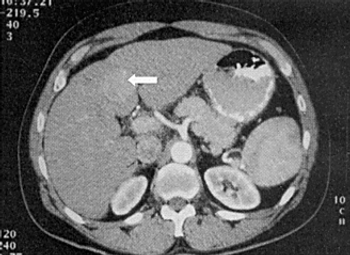
Treatment with sorafenib after curative resection or ablation of hepatocellular carcinoma did not improve recurrence-free survival compared with placebo, according to the results of the phase III STORM trial.

The addition of cediranib to treatment with cisplatin/gemcitabine did not improve progression-free survival in patients with advanced biliary tract cancer, according to the results of the phase II ABC-03 trial.
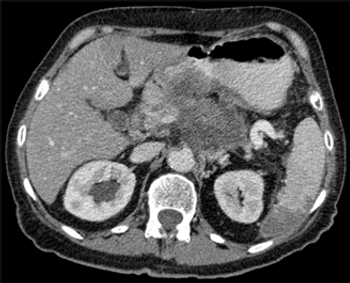
The JAK inhibitor ruxolitinib may improve overall survival in patients with metastatic pancreatic cancer characterized by an elevated CRP, a well-established marker of inflammation.
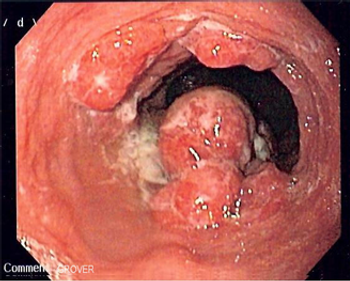
Adding ramucirumab to FOLFOX did not delay progression in patients with untreated advanced gastric or esophageal adenocarcinoma, according to trial results presented at the 2014 ASCO Annual Meeting.
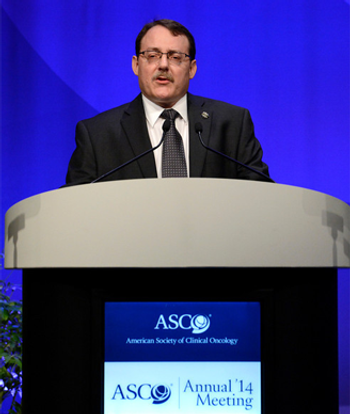
First-line treatment with chemotherapy plus either bevacizumab or cetuximab resulted in equally effective outcomes for patients with metastatic colorectal cancer.

Maintenance treatment with capecitabine and bevacizumab after 6 cycles of CAPOX B is an effective treatment in patients with metastatic colorectal cancer, according to the final results of the CAIRO3 study.

Exposure to a preference-based mail and telephone navigation intervention increased colorectal cancer (CRC) screening adherence compared to a standard mailed intervention among African Americans.

The VEGFR-2 tyrosine kinase inhibitor apatinib significantly prolonged overall survival in patients with advanced gastric cancer compared with placebo, according to the results of a phase III study.
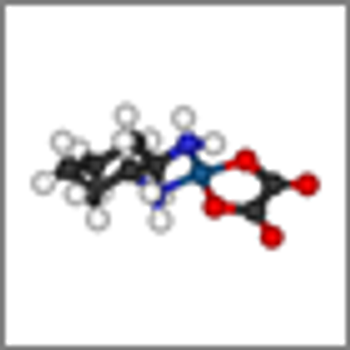
The role of oxaliplatin in early-stage rectal cancer may still be unclear, according to the differing disease-free survival results from two studies presented at the 2014 ASCO Annual Meeting.

Treatment with oxaliplatin-containing FOLFOX significantly improved the 3-year disease-free survival of select patients with curatively resected rectal cancer compared with treatment with 5-fluorouracil/leucovorin.

The cost of healthcare is spiraling out of control in the United States, and compared with other countries we don’t even have better health indices to show for it. We currently spend $2.8 trillion annually on healthcare, and this is predicted to increase greatly in the coming years.

As part of our coverage of the ASCO Annual Meeting, we discuss advances in the management of upper gastrointestinal (GI) tract tumors, as well as highlighting clinical trial results that will be reported at the meeting.

As part of our coverage of the 2014 ASCO Annual Meeting, we discuss some of the colorectal cancer research that is expected to be presented at the meeting.

Therapeutic outcomes for patients with most of the cancers originating in the upper gastrointestinal track still remain disappointing.

Every year in the United States, approximately 160,000 cases of colorectal cancer (CRC) are diagnosed, and about 57,000 patients die of the disease, making it the second leading cause of death from cancer among adults.

Meeting podcast: Listen to nationally regarded GI cancer specialist and clinical researcher, Peter C. Enzinger, MD, Assistant Professor of Medicine, Dana-Farber Cancer Institute, discuss new developments and trends in the management of esophageal cancer.